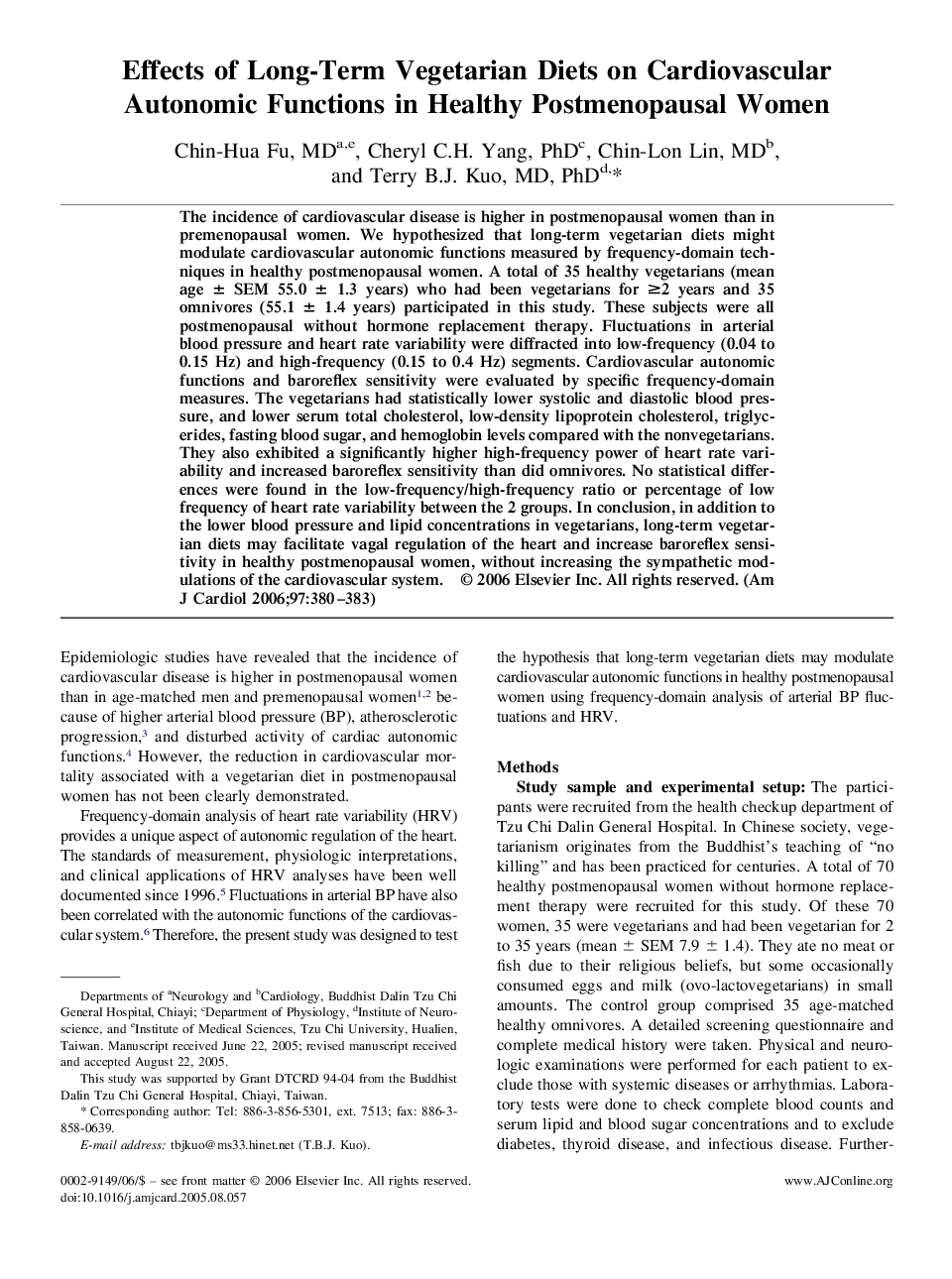| Article ID | Journal | Published Year | Pages | File Type |
|---|---|---|---|---|
| 2861890 | The American Journal of Cardiology | 2006 | 4 Pages |
The incidence of cardiovascular disease is higher in postmenopausal women than in premenopausal women. We hypothesized that long-term vegetarian diets might modulate cardiovascular autonomic functions measured by frequency-domain techniques in healthy postmenopausal women. A total of 35 healthy vegetarians (mean age ± SEM 55.0 ± 1.3 years) who had been vegetarians for ≥2 years and 35 omnivores (55.1 ± 1.4 years) participated in this study. These subjects were all postmenopausal without hormone replacement therapy. Fluctuations in arterial blood pressure and heart rate variability were diffracted into low-frequency (0.04 to 0.15 Hz) and high-frequency (0.15 to 0.4 Hz) segments. Cardiovascular autonomic functions and baroreflex sensitivity were evaluated by specific frequency-domain measures. The vegetarians had statistically lower systolic and diastolic blood pressure, and lower serum total cholesterol, low-density lipoprotein cholesterol, triglycerides, fasting blood sugar, and hemoglobin levels compared with the nonvegetarians. They also exhibited a significantly higher high-frequency power of heart rate variability and increased baroreflex sensitivity than did omnivores. No statistical differences were found in the low-frequency/high-frequency ratio or percentage of low frequency of heart rate variability between the 2 groups. In conclusion, in addition to the lower blood pressure and lipid concentrations in vegetarians, long-term vegetarian diets may facilitate vagal regulation of the heart and increase baroreflex sensitivity in healthy postmenopausal women, without increasing the sympathetic modulations of the cardiovascular system.
